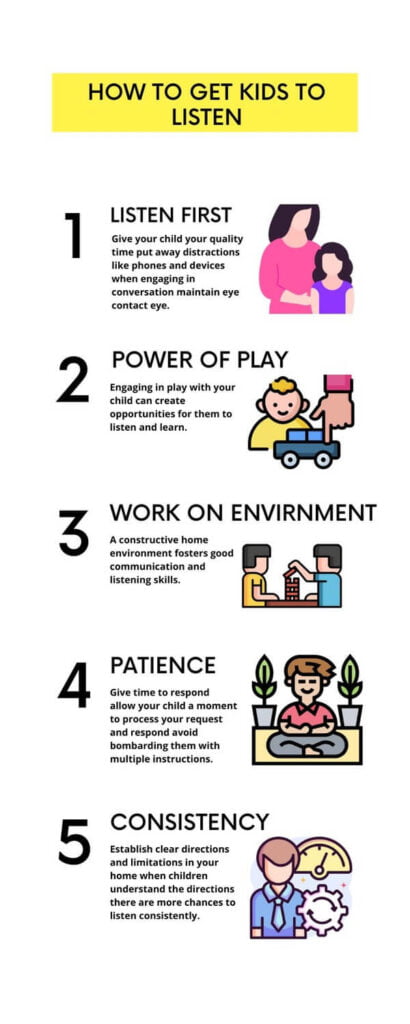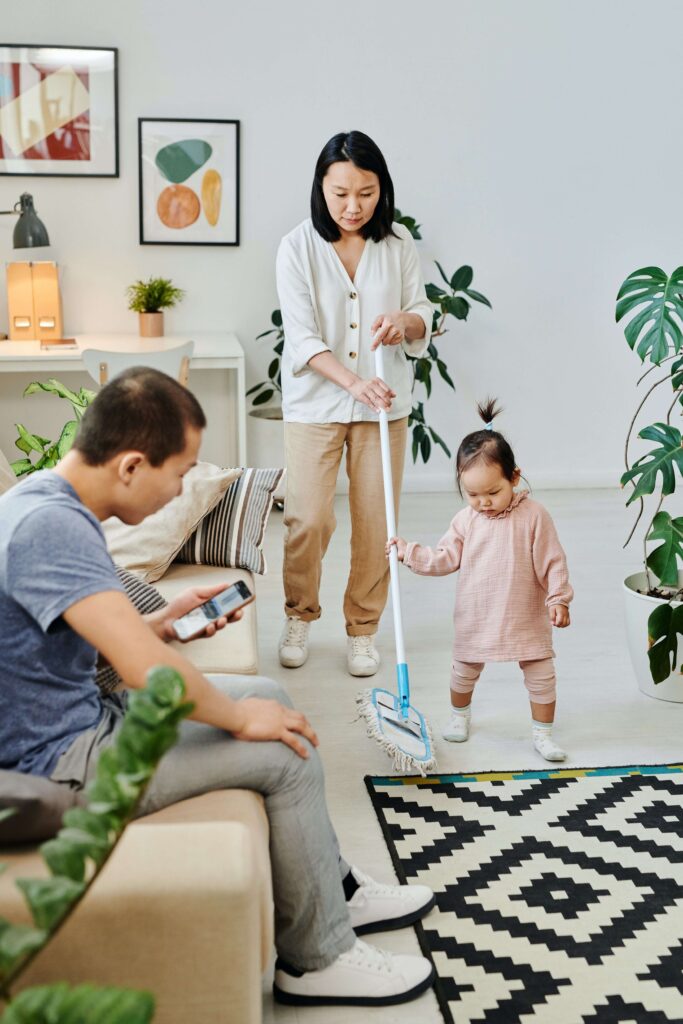Table of Contents
Parenting is an amazing journey full of with love laughter and challenges among these dares getting kids to listen can be a considerable hurdle children are naturally curious and unconventional and they often march to the beat of their own drums however effectual communication is key to a harmonious parent and child relationship. In this article we will find practical strategies insights and tips to assist parents and caregivers successfully get kids to listen.
1. The art of listening
Before diving into way to get kids to listen its crucial to understand the reciprocal nature of communication listening is the base of effectual communication here is how to cultivate this skill be present give your child your quality time put away distractions like phones and devices when engaging in conversation maintain eye contact eye contact conveys your genuine interest in what your child is saying show empathy admit your child’s feelings and emotions let them know you understand and care about what they are experiencing use open-ended questions encourage conversation by asking open-ended questions that require more than a simple yes or no response.
2. Setting clear expectations
Establishing clear expectations is fundamental to getting kids to listen when children know what is expected of them they are more likely to cooperate here’s how to set clear expectations use positive language frame your expectations in a positive way for example say please put your toys away instead of don’t leave your toys out be specific clearly define what you want your child to do instead of saying clean your room say please put your books on the shelf and your clothes in the hamper consistency is key be regular with your expectations and consequences when children understand that rules are apply they are more likely to comply.

3. Active engagement in play
Play is a powerful tool for communication and bonding engaging in play with your child can create opportunities for them to listen and learn while having fun here are some tips for active play follow their lead let your child choose the activity or game this empowers them and makes them more receptive to your suggestions later narrate play while playing narrate what you’re doing and what your child is doing this builds vocabulary and encourages listening use playtime for teachable moments integrate important lessons into play for instance if playing with building blocks discuss concepts like balance and stability.
4. Positive reinforcement get Kids to listen
Positive reinforcement involves acknowledging and rewarding good behavior its a powerful tool for appreciating kids to listen here’s how to use it in effectual way express admiration and appreciation offer sincere admiration when your child follows instructions or exhibits good behavior for example you did a great job cleaning your room reward systems implement a reward system where children earn privileges or small rewards for meeting expectations consistently be specific when praising be specific about what your child did well instead of saying good job say i appreciate how you listened and cleaned up your toys without being asked.
5. Ways of Effectual Communication
Effectual communication involves not just what you say but how you say it use these strategies to communicate more effectively listening show your child that you value their thoughts and emotions by actively listening to them without interrupting use positive language frame your requests and feedback in a positive way instead of saying stop running say lets walk inside empathize acknowledge your Childs emotions even if you don’t agree with their perspective for example I understand that your upset about not having dessert but its important to eat our dinner first.
6. Consistency
consistency is crucial when it comes to getting kids to listen here’s why it matters and how to maintain it set limitations establish clear directions and limitations in your home when children understand the directions there are more chances to listen consistent consequences ensure that consequences for not following instructions are consistent if a rule is broken the consequence should be clear and predictable lead by example model the behavior you want to see in your child if you expect them to listen be a good listener yourself.

7. Making a constructive home environment
A constructive home environment fosters good communication and listening skills here’s how to make such an environment quality time spend quality time with your child regularly this strengthens your bond and makes them more receptive to your guidance respect and kindness treat your child with respect and kindness when children feel valued they are more likely to respond positively problem-solving together involve your child in problem-solving discussions foster them to voice their opinions and suggest solutions.
8. The power of patience
Patience is a virtue especially when it comes to getting kids to listen here’s how to practice patience effectively stay calm maintain your composure even when your child is not listening yelling or becoming frustrated can escalate the situation give time to respond allow your child a moment to process your request and respond avoid bombarding them with multiple instructions at once understand developmental stages recognize that children go through different developmental stages what they can comprehend and do will evolve over time.
Conclusion
A stronger connection through listening in conclusion getting kids to listen is not about control but about encourage effectual communication and building a strong bond by practicing listening setting clear expectations engaging in positive reinforcement and using effective communication ways parents and caregivers can bring up a healthy and responsive relationship with their children patience consistency and a positive home environment are the cornerstones of success in this endeavor remember that every child is different and what works for one may not work for another flexibility and adaptability are essential as you navigate the amazing journey of parenting
